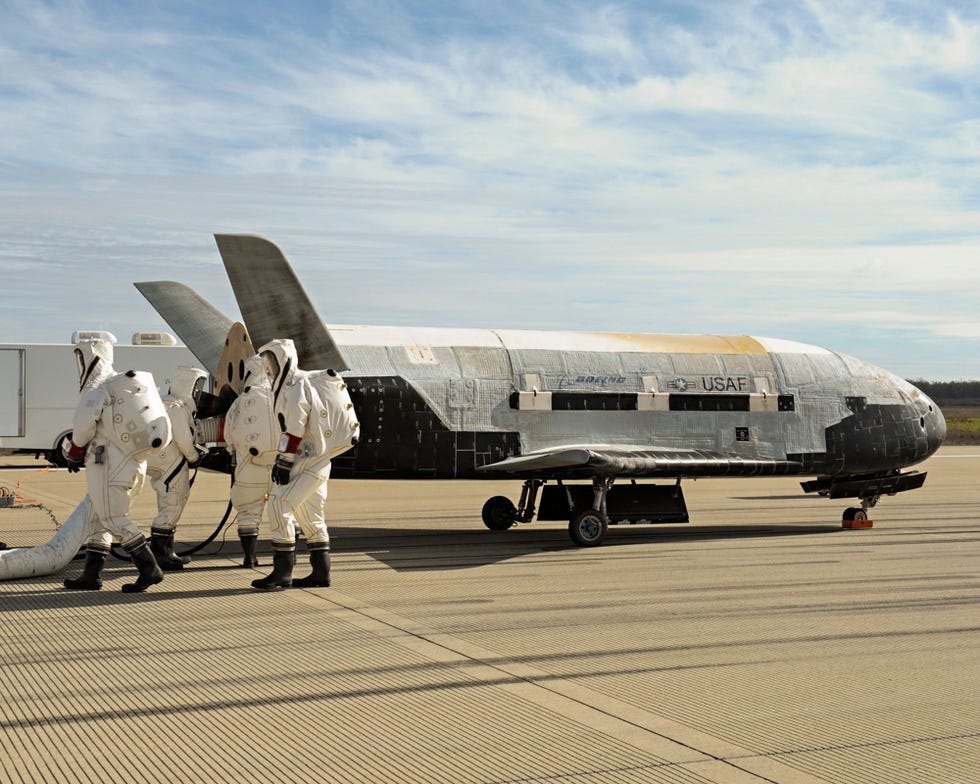President Trump today
announced that he is directing the Department of Defense to create a sixth
branch of the military: the Space Force. "I am hereby directing the
Department of Defense and Pentagon to immediately begin the process necessary
to establish a Space Force as the sixth branch of the armed forces," Trump
said during a meeting of the National Space Council in Washington D.C.
The announcement came during
the third public meeting of the National Space Council, where Trump also signed
Space Policy Directive 3 after his remarks. The directive deals with space
debris and space traffic control, instructing the Department of Defense to
modernize its methods of tracking objects in orbit, partially by incorporating
commercial tracking services.
Trump first floated the idea
of establishing a military branch for space operations in March while speaking
to service members at Marine Corps Air Station Miramar in San Diego. It is not
exactly clear how the establishment of a sixth military branch would be
accomplished, although Trump asked the Chairman of the Joint Chiefs of Staff,
General Joseph Dunford, to "carry that assignment out" during his
remarks today.
The president, however,
does not have the authority to create a new military branch without an act of
Congress.
"Congress alone has the
power to establish a new branch of the military and to establish the positions
of senior executive officials to lead such a department,” Jonathan Turley, a
professor at Georgetown University’s law school, told Defense News. Under the
direction of Trump, the Pentagon could establish a framework for a new branch
of the armed forces, but it would need to go to Congress for final approval and
funding.
Last year, the House Armed Services Committee, led by Republican Rep. Mike Rogers of Alabama and Democrat Rep. Jim Cooper of Tennessee, introduced legislation to create an independent "Space Corps" that would operate under the Department of the Air Force, similar to the Marine Corps that serves within the Department of the Navy. The Space Corps, however, was removed from the 2018 National Defense Authorization Act (NDAA) by congressional leaders reconciling the differences between House and Senate versions of the bill.
Instead, the space-related
missions of the Air Force were restructured, giving more authority to Air Force
Space Command to oversee the defense of assets in orbit.
But the Space Force, as
proposed by Trump, may operate independently of the Air Force. "We are
going to have the Air Force, and we are going to have the Space Force, separate
but equal," the president said.
However, a detailed plan to
establish a new military branch will take time to flesh out, and exactly how
the Space Force would operate alongside the other branches of the military is
not yet clear. When the "Space Corps" legislation was being
considered by Congress last year, military leaders including Secretary of the
Air Force Heather Wilson, Air Force Chief of Staff Gen. David Goldfein, and
Secretary of Defense James Mattis voiced their opposition, citing increased
bureaucracy within the Defense Department that would hinder the military's
warfighting readiness if the "Space Corps" moved forward.
"At a time when we are
trying to integrate the Department's joint warfighting functions, I do not wish
to add a separate service that would likely present a narrower and even
parochial approach to space operations," Mattis wrote at the time in a
letter to Ohio Rep. Mike Turner, the Republican Chairman of the House Tactical
Air and Land Forces Subcommittee.
Whether or not Mattis or
other defense leaders will change their stance now that Trump is asking the
Pentagon to create a new Space Force is not clear. A reevaluation of space
defense has been a priority for military leaders as China and Russia continue
to aggressively expand their operations in orbit, including a missile test
China conducted in 2007 to shoot down a defunct satellite. (The United States
and Russia also have this capability.)
"There's nothing we do
today, there's not a sailor, soldier, or marine that operates in their domain
that isn't using space capabilities to conduct their mission," General
John "Jay" Raymond, commander of Air Force Space Command, told
Popular Mechanics during a visit to the New York offices in November of last
year.
As orbits get more crowded
and launch costs drop, the United States is considering its options to defend
assets in space—a domain that the country enjoyed nearly unchecked control of
for decades. The president has made it clear that to accomplish that mission,
he believes a new military branch for space operations is necessary.
When it comes to defending
America, it is not enough to merely have an American presence in space; we must
have American dominance in space."
Source



/arc-anglerfish-arc2-prod-sltrib.s3.amazonaws.com/public/R62HHTMYQ5GXNGBEDHGN36TQWA.jpg)


I believe be better creates a research on space 🚀 mining and resources engineering core.
ReplyDeleteWhich could reach USA richest country in planet.space 🚀 mining resources experiments engineering core.
Mine from various planet and precious stones.metal resources may innovation.
Seriously.....stupid !
ReplyDelete